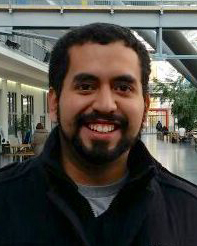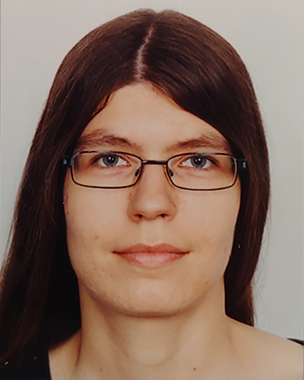Workshop
The workshop will take place virtually.
Thursday, November 26, 2020
----
Detecting aberrant expression in RNA-seq:
A hands-on tutorial through bioinformatics tools and workflows
Date: November 26, 2020 10 - 12 pm
Description
Recent studies have shown the effectiveness of RNA-seq analysis for pinpointing new disease-causing genes and prioritizing variants of unknown significance in rare disease diagnostics. In this context, pipelines and new computational methods have been developed, but practical guidance on applying and combining such tools is missing. This hands-on workshop is designed to provide such guidance. The participants will learn how to use current methods to find expression outliers, splicing outliers and imbalanced allelic expression to pinpoint candidate pathogenic genes of interest in genetic disease patients. We will provide a user-friendly platform so that people without knowledge in programming are able to perform the exercises and benefit from this workshop. Moreover, even though the focus is on rare disease applications, the methods can also be useful for participants interested in finding aberrant RNA expression events in common diseases or cancer.
Material
- Laptop
- No specialized software is needed as we will use Google Colab which runs on any browser.
Speakers and Organizers
Julien Gagneur, Technical University of Munich, gagneur@in.tum.de
Vicente A. Yépez, Technical University of Munich, yepez@in.tum.de
Ines Scheller, Technical University of Munich, ines.scheller@in.tum.de
Julien Gagneur

© Gagneur
Julien Gagneur has a background in applied mathematics (École Centrale Paris and École Normale Supérieure de Cachan). He did his PhD (2004) together with the Heidelberg based biotech CellZome AG and the École Centrale Paris. He was then staff scientist in the lab of Lars Steinmetz at the European Molecular Biology Laboratory, Heidelberg. In 2012, Julien Gagneur started his own lab at the Gene Center of the Ludwig-Maximilians Universität in Munich. He was appointed assistant professor for Computational Biology in 2016 and full professor for Computational Molecular Medicine in 2020 at the Technical University of Munich. The focus of his lab is an improved understanding of the genetic basis of gene regulation and its implication in diseases. To this end, he employs machine learning and statistical modeling of omic data and work in close collaboration with experimentalists. Julien Gagneur is coordinator of the e:Med networking alliance AbCD-net (Aberrant transcriptome influencing risk of common diseases).
https://www.in.tum.de/gagneurlab
Vicente Yépez

© Yépez
Vicente Yépez was born in Quito, Ecuador. He has a bachelor in Industrial Engineering from México. He gained professional experience working as a consultant in Novatech (Ecuador), and Tetra Pak and Kellogg’s (Mexico). Then, he engaged in a masters program in Mathematical Modeling offered by the University of L’Aquila, Italy. He did his master’s thesis in the “Numerical Modeling of the spread of populations”. Currently, he is on his last year of a PhD in Bioinformatics, under Julien Gagneur’s group in the Technical University of Munich (TUM), Germany and part of the Graduate School of Quantitative Biosciences Munich. His PhD thesis is based on genetic diagnosis of rare diseases using multiomics data.
Ines Scheller

© Scheller
I was born in Munich, Germany, in 1995 where I went to school until 2013. Afterwards I studied Bioinformatics at the Technical University Munich (TUM) and the Ludwig-Maximilians-Universität (LMU) in Munich and received my bachelor's degree in 2016 and my master's degree in 2019. Between August 2017 and June 2018 I spent two semesters on exchange at the University of Bergen in Norway. From November 2018 to July 2019 I worked on my master thesis and as a student assistant in the group of Prof. Gagneur at the TUM in Munich, focusing on the detection of aberrant splicing events in rare diseases. Since October 2019 I am a first year PhD student in Computational Biology in the group of Prof. Gagneur and continue to work on the detection of aberrant molecular events in disease using multi-omics data.
Learning objectives
1. Strategies and experimental design considerations of using RNA-seq in genetic disease diagnostics
2. Quality control and visualization of RNA-seq derived data sets
3. Detection of gene expression outliers
4. Detection of aberrant splicing events
5. Detection of mono-allelic expression
Recommended background reading
The workshop participants should make themselves familiar with the concepts on how RNA sequencing can be useful in the diagnostics of genetic diseases where DNA sequencing struggled to pinpoint causal variants. The following papers discuss the use of RNA-seq in rare disease diagnostics:
Cummings et al., 2017, Science Translational Medicine,
doi.org/10.1126/scitranslmed.aal5209
Kremer, Bader et al., 2017, Nature Communications,
doi.org/10.1038/ncomms15824
Gonorazky et al., 2019, American Journal of Human Genetics,
doi.org/10.1016/j.ajhg.2019.01.012
Frésard et al., 2019, Nature Medicine,
doi.org/10.1038/s41591-019-0457-8
The main goal of this workshop is to detect aberrant signals within RNA sequencing data. The methods OUTRIDER (Brechtmann et al) and FRASER (Mertes el al) describe in a more technical way how to detect aberrant expression and splicing, respectively:
Brechtmann, Mertes, Matusevičiūtė et al., 2018, American Journal of Human Genetics
doi.org/10.1016/j.ajhg.2018.10.025
Mertes, Scheller et al., 2019, bioRxiv, doi.org/10.1101/2019.12.18.866830
Finally, the following protocol preprint instructs step by step how to obtain and interpret RNA aberrant events from raw sequencing files with the goal of diagnosis.
Yépez et al, 2020, Protocol Exchange. doi.org/10.21203/rs.2.19080/v1
Workshop setup
We already presented this workshop in the ASHG 2019 conference. All its associated material can be found here: github.com/gagneurlab/RNAseq-ASHG19
Throughout the workshop we will use the Google Colab platform to run notebooks using R/Bioconductor packages. To get started with IR notebooks and Colab we encourage participants to play around with the notebooks. For this, we set up a Getting started with Colab notebook:
github.com/gagneurlab/RNAseq-ASHG19/blob/master/colab_notebooks/Getting_Started_with_Colab_and_R.ipynb
Registration
Registration is mandatory, please sign in here until Nov 25, 2020.
If you registered already for the workshop in March, just write us a mail (info@sys-med.de) if you still want to participate.
Questions?
For content-related questions, please contact the organizers:
Vicente A. Yépez, yepez@in.tum.de and
Julien Gagneur, gagneur@in.tum.de
For all organizational requests, please contact the e:Med office: info@sys-med.de or Lioba Courth, l.courth@dkfz.de




